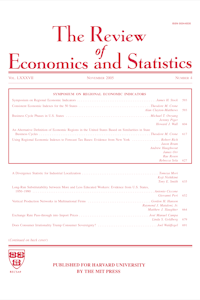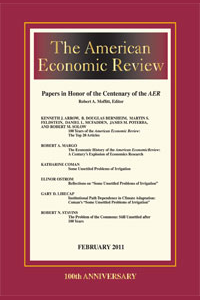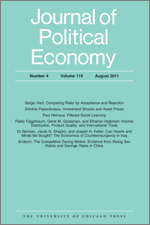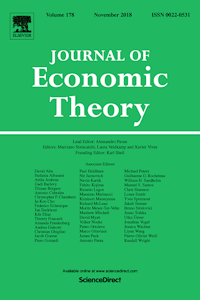
Crossley, T. and Low, H.
Job loss, credit constraints and consumption growth
Review of Economics and Statistics
(2013)
Abstract: We use direct evidence on credit constraints to study their importance for household consumption growth and for welfare. We distentangle the direct effect on consumption growth of a currently binding credit constraint from the indirect effect of a potentially binding credit constraint which generates consumption risk. Our data is focused on job losers. We find that less than 5% of job losers experience a binding credit constraint, but for those that do, they experience significant welfare losses, and consumption growth is 24% higher than for the rest of the population. However, even among those who are currently unconstrained and who are able to borrow if needed, consumption responds to transitory income.
Keywords: Job loss, Credit constraints, Consumption
JEL Codes: D12, D91, J64
Author links:
Publisher's Link: http://www.mitpressjournals.org/doi/abs/10.1162/REST_a_00417#.U3NzRkoxZFE ![]()
Keynes Fund Project(s):
Individual Response to Risk Over the Business Cycle (JHLE)



